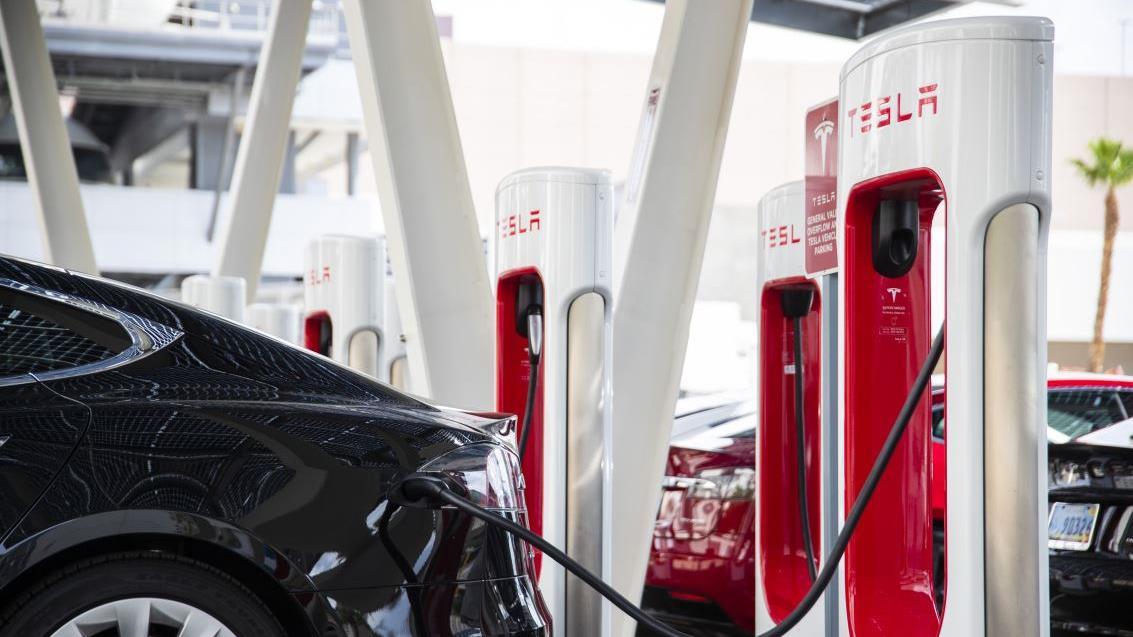Tesla’s Elon Musk jabs hedge fund short-seller in latest feud
Is Elon Musk poking the bear?
Tesla's CEO took a fresh swipe at hedge fund manager David Einhorn, who in his third-quarter letter accused Musk of knowingly orchestrating a “significant fraud.”
Musk, in a letter of his own, says it's understandable that Einhorn wanted to “save face” with his investors as his fund's assets under management have fallen from $15 billion to $5 billion, in part due to his bet against Tesla.
Einhorn’s Greenlight Capital had shorted Tesla’s stock, making a bet shares would fall, and endured significant losses as the automaker rallied from $223 to $240 during the June quarter as sales improved more than the hedge fund manager had expected. Tesla shares are up less than 1 percent this year, trading above the $300 level.
In the last quarter, Tesla returned to profitability, something investors had long sought.
| Ticker | Security | Last | Change | Change % |
|---|---|---|---|---|
| TSLA | TESLA INC. | 417.32 | +6.21 | +1.51% |
The hedge fund’s letter said Tesla has continued to “spin positive PR ahead of the safety and fair treatment of its customers.”
Einhorn accused the electric-car maker of issuing a “software update” that decreased battery range instead of recalling batteries which were at risk of catching fire. He says Tesla did not warn or compensate its customers for the drop in performance.
He also pointed to litigation unsealed in September that showed Tesla was creating Project Titan to covertly replace defective components of its solar panels rather than warn its customers of the fire risk associated with them.
TESLA’S SURVIVAL FACING NEW $50 BILLION THREAT
As for Einhorn's allegations of Musk knowingly orchestrating a “significant fraud,” he points to the $2.6 billion acquisition of an insolvent SolarCity, which was another company founded by Musk. He concluded the CEO is “above the law.”
While there is no love lost between the two, Musk extended an invitation to Einhorn to visit Tesla’s facilities, and said he wanted to send the hedge fund manager a pair of short shorts to help him through this “difficult time.”
It wouldn’t be the first time Musk sent a pair of short shorts to Einhorn, having done so in August 2018.
It didn't take long for Einhorn to respond in kind.
"We both struggled last year," he noted in a letter to the billionaire entrepreneur on Friday, referring to the swipe about Greenlight's losses. "However, a key difference is that Greenlight's business has generated real profits for our investors since we began in 1996. Tesla's business financials reflect a decade of annual losses and an accumulated deficit of over $6 billion."
Overall, Greenlight's bet that Tesla's stock would drop "hasn't performed badly," Einhorn continued. "By continually changing the narrative and narrowly averting crisis after crisis, you certainly have kept it interesting."
The hedge fund manager said he's eager to take Musk up on the offer of a meeting, suggesting that they tour one of Tesla's plants and include company CFO Zach Kirkhorn. He also asked Musk to provide any concrete evidence that Greenlight's claims were erroneous.
"We certainly are capable of mistakes, and if we said anything false, we will correct it for the record," Einhorn wrote. "Facts do matter to us. I can't imagine how it would feel to have entire websites like https://elonmusk.today chronicling your untruths."
Greenlight Response to Elon Musk 11-8-19 by FOX Business on Scribd
Short sellers like Einhorn have been Public Enemy No. 1 for Musk.
“These guys want us to die so bad they can taste it,” Musk tweeted in June 2018. He warned them they had a few weeks before their “short position explodes.”
Read an excerpt from Greenlight Capital's Quarterly Update:
Tesla (TSLA) and Chemours (CC) were material losers during the quarter. TSLA shares recovered from $223.46 to $240.87. Unit sales in the June quarter improved more than we expected compared to the March quarter.
Even so, TSLA appears to continue to spin positive PR ahead of the safety and fair treatment of its customers. For example, in August Walmart sued TSLA because its solar panels were catching on fire. Rather than warn its solar customers when TSLA became aware of the fire risk, TSLA allegedly created Project Titan – a covert program to replace the defective components while staying out of the news. Similarly, in response to a series of car battery fires, instead of recalling the batteries, TSLA appears to have quietly issued a “software update” to the battery management system that has a side effect of reducing battery range. TSLA has chosen not to warn or compensate its customers for the decreased performance.
Finally, to the surprise of nobody, documents in TSLA’s SolarCity litigation unsealed in September showed that Elon Musk knowingly orchestrated a significant fraud by arranging the $2.6 billion acquisition at a time when SolarCity was insolvent. Musk and his family had a huge conflict of interest, but rather than properly recusing himself, Musk initiated the transaction and drove the process.
SolarCity was so cash-strapped, it was trying to delay payments to vendors after parts were delivered and the vendors had recognized the revenue; SolarCity could not raise any funds at reasonable rates from third parties; and Musk engineered the unveiling of the Solar Roof tile to convince TSLA’s shareholders to approve the deal, even though the product did not exist at the time. As was the case with Musk’s extraordinary “funding secured” tweet last year, we believe this level of trampling of standard processes of corporate governance, ignoring methods to deal with related-party transactions and self-dealing should lead to substantial consequences. For now, the accepted reality appears to be that Elon Musk is above the law.




















